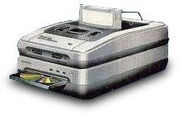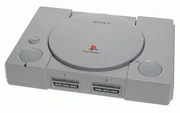No edit summary |
(Adding header) |
||
| Line 1: | Line 1: | ||
| + | {{Head |
||
| + | | type = |
||
| + | | quote = |
||
| + | | speaker = |
||
| + | | stub = |
||
| + | | class = |
||
| + | }} |
||
[[Image:SNEScd.jpg|thumb|right|The design Nintendo was aiming for. As you can see it featured a slot for both SNES and CD-ROM games.]] |
[[Image:SNEScd.jpg|thumb|right|The design Nintendo was aiming for. As you can see it featured a slot for both SNES and CD-ROM games.]] |
||
The '''SNES CD-Rom''' is an infamous addition to the [[SNES]] that ultimately never saw the light of day. It did, however, see many ups and downs and a multitude of collaborations with companies such as Sony and Philips, though nothing ended up working to the way [[Nintendo]] wanted it to, and oddly neither this nor the hope for CD based games on the [[Nintendo 64]] were ever fulfilled. |
The '''SNES CD-Rom''' is an infamous addition to the [[SNES]] that ultimately never saw the light of day. It did, however, see many ups and downs and a multitude of collaborations with companies such as Sony and Philips, though nothing ended up working to the way [[Nintendo]] wanted it to, and oddly neither this nor the hope for CD based games on the [[Nintendo 64]] were ever fulfilled. |
||
Revision as of 00:36, 10 November 2012
|

The design Nintendo was aiming for. As you can see it featured a slot for both SNES and CD-ROM games.
The SNES CD-Rom is an infamous addition to the SNES that ultimately never saw the light of day. It did, however, see many ups and downs and a multitude of collaborations with companies such as Sony and Philips, though nothing ended up working to the way Nintendo wanted it to, and oddly neither this nor the hope for CD based games on the Nintendo 64 were ever fulfilled.
Development
Nintendo first intended to release a CD based addon for the SNES in 1991, and planned to do so with Philips. Philips would give Nintendo CD players to work with while they Philips in return would also be given licensing rights to various Nintendo properties. The ensuing games released on the Philips CD-I weren't impressive and are still considered some of the most infamous video games ever released, primarily because of the fact that these terrible games featured some of the most memorable video game characters. Long story short, the deal didn't go as planned and Nintendo instead went over to Sony, who happened to be quite the competition for Philips.

There was an immense possibility that Nintendo would've helped with the making of this console. And in fact they did - without their semi-contributions to it it may never have been released.
Sony and Nintendo planned to release the PlayStation (now a household name - though not because of Nintendo). The PlayStation could play both discs and SNES cartridges. These discs were obviously more impressive than the cartridges, and were rightfully called "Super Discs". However, things went utterly wrong when Nintendo found that a deal with Sony that occurred way back in 1988 gave Sony full control on all games played on a CD for this new collaboration.
While claiming not to have abandoned Sony and the PlayStation, Nintendo went back to Philips to announce that they were also back together due to superior technology, as Nintendo gracefully put it. Nintendo at the same time explained that this new collaboration, or rather a resurrection of a previous collaboration, wouldn't effect the bond Nintendo and Sony had once Sony threatened to sue.
Well, come C.E.S. in 1991, Sony expected that Nintendo would promote the PlayStation as much as possible. That didn't turn about to be the case when Nintendo announced their exclusive devotion to Philips. In short, it made Sony extremely angry, stating that Nintendo had violated their deal, which technically they had.
Next, Sony knew they could manage on their own without the help from Nintendo, and thus announced the Sony PlayStation at TIES. The new console was described by Sony as both an education tool and a game machine. While no games were announced, they had explained that SNES cartridges would still be able to play on it. Come 1992 Nintendo confirmed that they will not work with Sony, and explained their devotion to Philips.
